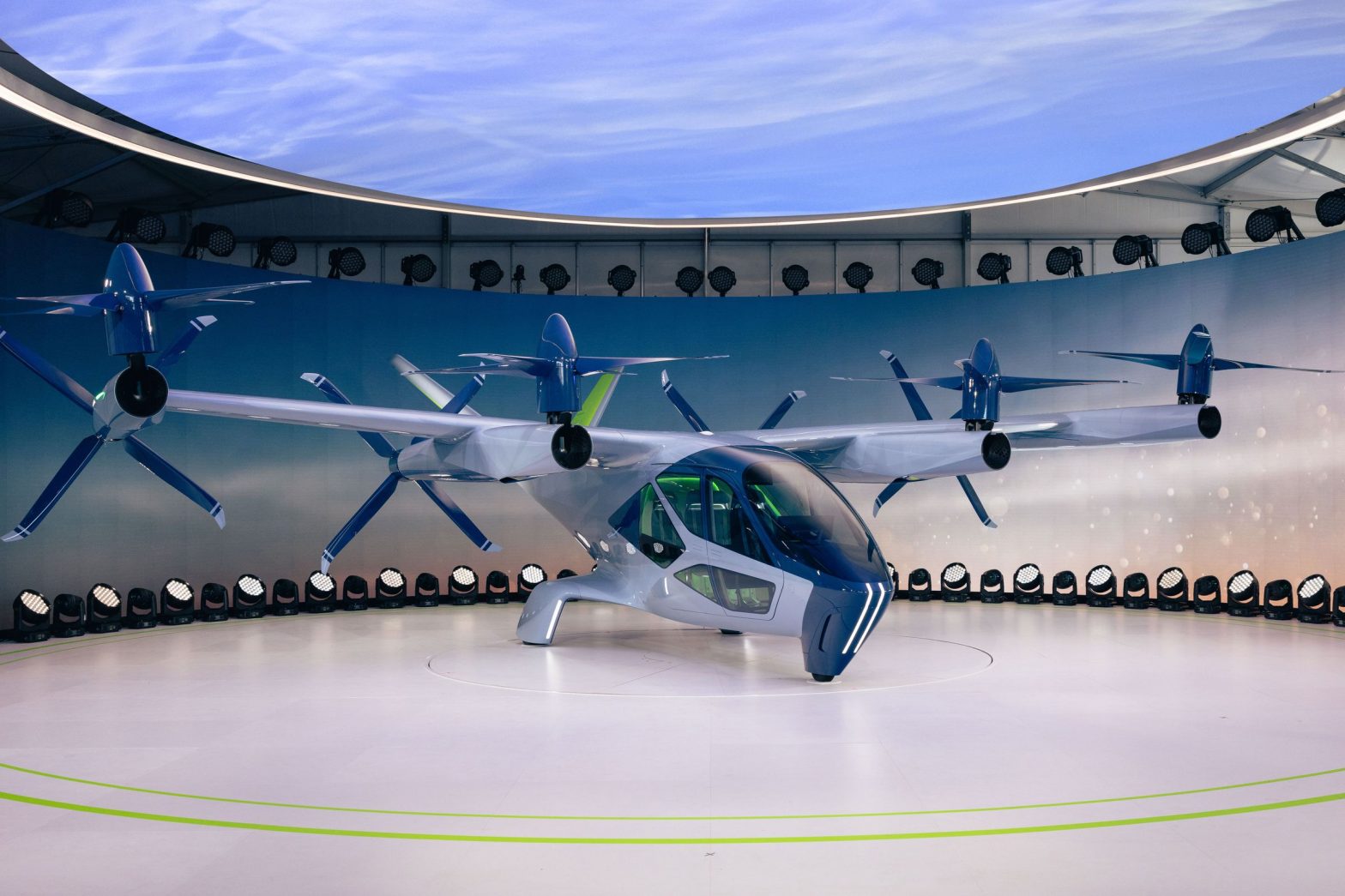/
If this sounds familiar, that’s because the company introduced a prototype at CES back in 2020, too.
Share this story
:format(webp)/cdn.vox-cdn.com/uploads/chorus_asset/file/25213918/Supernal_CES_2024_Press_04.jpg)
The last time Hyundai brought an electric vertical takeoff and landing (eVTOL) prototype to CES, it was 2020, and the South Korean automaker was talking bullishly about adding it to Uber’s forthcoming air taxi network.
Today, Uber’s air taxi network has been sold to another startup, the air taxi industry as a whole is still struggling to get a commercial service up and running, and Hyundai is unveiling a new “product concept” that it says will be ready for production by 2028.
Supernal, the automaker’s eVTOL division, says its S-A2 concept can cruise at 120mph and reach an altitude of 1,500 feet. It packs enough battery capacity for the type of 25- to 40-mile trips that helicopters commonly conduct between downtowns and airports for wealthy business types.
The company says its aircraft will “operate as quietly as a dishwasher,” emitting 65 decibels in vertical takeoff and landing phases and 45dB while cruising horizontally. By comparison, the average helicopter puts out between 96 and 107db. Next to eliminating pollution, noise reduction is the most common argument in favor of electric aircraft.
With eight tilt rotors and an egg-shaped cabin, Supernal’s concept looks similar to other air taxi prototypes we’ve seen, including those from Joby Aviation, Wisk Aero, and Archer Aviation.
:format(webp)/cdn.vox-cdn.com/uploads/chorus_asset/file/25211643/Super_Ext_AY_28.png)
Supernal is one of a handful of companies that wants to replace noisy, polluting helicopters and regional aircraft with all-electric, multi-rotor vehicles designed for short hops between nearby airports or quick trips from an urban downtown to a local airport.
Initially, these aircraft were mislabeled as “flying cars” based on their ability to take off and land vertically like a helicopter and then shift to forward flight through the use of electric-powered tilt rotors. Early on, companies embraced the “flying car” label, seeking to capitalize on the retro-futuristic appeal that harkens back to old Popular Science and Popular Mechanics covers and engineering eccentricities like the “Moller Skycar.”
But as they slowly plod through endless testing procedures mandated by a lengthy regulatory process, they have since rallied around new nomenclature, like eVTOL, urban air mobility, advanced air mobility, and air taxis.
:format(webp)/cdn.vox-cdn.com/uploads/chorus_asset/file/25211647/Supernal_Ext_AY_03.jpg)
There’s been plenty of turbulence in this emerging industry. A number of startups have gone out of business, most notably, Google founder Larry Page’s Kitty Hawk, which helped kick off the boom in 2017. There have been lawsuits, layoffs, mergers, and no shortage of drama, including a handful of fires and at least one (uncrewed) crash.
Supernal’s ties to Hyundai could give it an advantage in the manufacturing of its aircraft, as the spinoff will be able to rely on the automaker’s mass production capabilities to help it get started. But the company won’t have any special advantages when it comes to regulatory approval, which promises to be long and difficult.
Under FAA rules, aviation companies need to receive three types of certification before launching a commercial service in the US: type certification means the aircraft meets all of the FAA’s design and safety standards; production certification is the approval to begin manufacturing the aircraft; and air carrier certification means the company can officially conduct commercial air taxi services.
Supernal says it’s putting a lot of focus on batteries, particularly, the ability to upgrade to lighter cells when the technology improves. One of the main challenges with electric flight is the power-to-weight ratio. Heavy batteries create more weight, requiring more power to compensate, and even bigger batteries. That’s why Supernal and others are focused on short flights and regional hops.
But Supernal isn’t so daunted by the technological challenges that it can’t picture a cozy interior with fine leather upholstery. The design is clean and minimal, with lighting meant to give the impression of being in a larger space.
Hyundai isn’t the only global company to see visions of small electric aircraft buzzing over cities. Stellantis, which owns Jeep, Chrysler, and Dodge, is committed to mass-producing air taxis for Archer Aviation. United and Delta airlines are also invested in the technology, as are Boeing and NASA.
